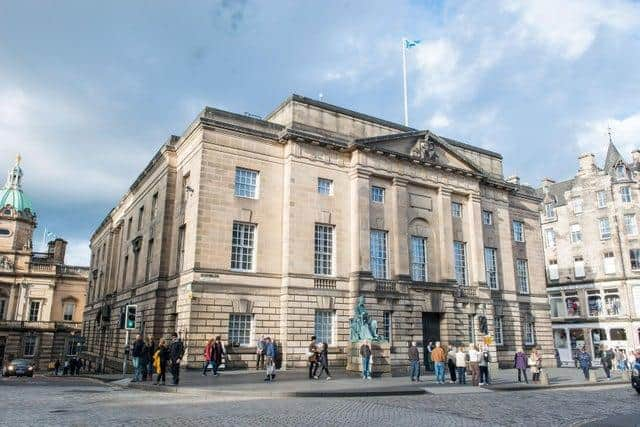Trio convicted of gang raping a young Edinburgh mother in 2000 have cases referred to High Court in light of fresh evidence


The Scottish Criminal Cases Review Commission (SCCRC) has referred the cases of David Pugh, Kevin Kane and Brian Meighan - known as the “Fernieside Three” - to the High Court of Justiciary and a statement of reasons has been sent to the High Court, Lord Advocate and Crown Office.
All three were convicted after trial of detaining a woman against her will and raping her in an Edinburgh tower block in 2000, with the Crown Office relying on evidence from a forensice examiner at trial in respect of injuries to the complainer.
Advertisement
Hide AdAdvertisement
Hide AdThey were each sentenced to six years in jail and released on licence in 2004. Initial appeals were refused in June 2002, and in 2004 the SCCRC refused to consider referring their cases back to the High Court.
They also called for a judicial review to challenge the commission’s refusal and this was turned down in July 2006.
In April 2019, Pugh applied again to the commission, relying upon fresh evidence in the form of three experts which refuted the opinion evidence given by the forensic medical examiner at trial.
Given the grounds to be reviewed were common to the co-accused, Meighan and Kane, they also applied to have their convictions reviewed in September 2020.
The SCCRC has now decided to refer the applicants’ convictions to the High Court of Justiciary.
The SCCRC considers the fresh evidence now available, which arises from research and developments in medical science since the time of original conviction, is of a “kind and quality” which was likely to have been of “material assistance” to the jury in its consideration of the critical issue of consent, and there “may have been a miscarraige of justice.”
The details were revealed on Friday in a statement released by the Scottish Government on behalf of the SCCRC.
‘Lured into trio’s flat’
The young mother said she was lured into a 14th-floor flat in Little France House. She told the High Court in Edinburgh in 2000 that she had been looking for a friend in Craigour Place at the time.
Advertisement
Hide AdAdvertisement
Hide AdWhen outside she called for her friend but got no reply and said she heard someone from the block of flats ask who she was looking for. The woman said she was told the friend she was seeking was in the flat where she found three strangers – Meighan, Kane and Pugh.
The woman, 21 at the time, said she was worried and tried to leave but was pushed into the bedroom and attacked.
Medical evidence was later produced which was claimed to show injuries consistent with sexual assault.
But the trio claimed the rape victim was allowed to alter her 14-page police statement regarding where the attack was said to have taken place, changing it from the stariwell of a high-rise to one of the accused’s flats.
The men also claimed police officers failed to test the woman for drug use and tried to suppress CCTV evidence.
They insist the victim consented to group sex, and twice turned down the chance of parole by refusing to change their pleas to guilty.